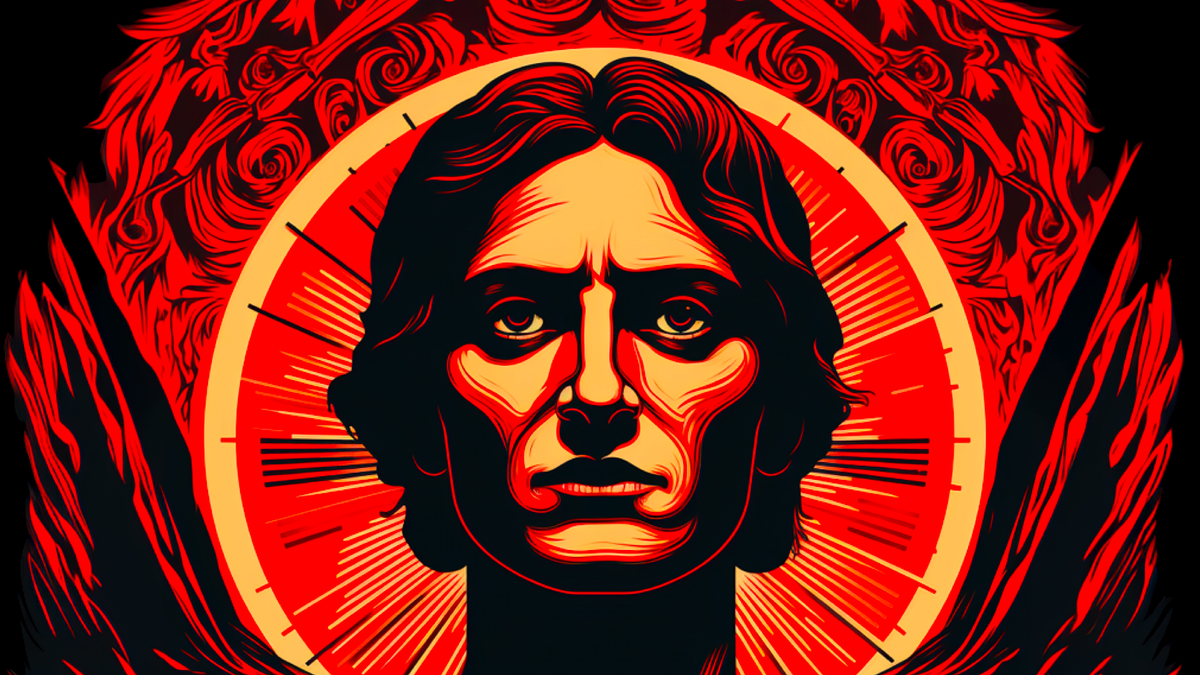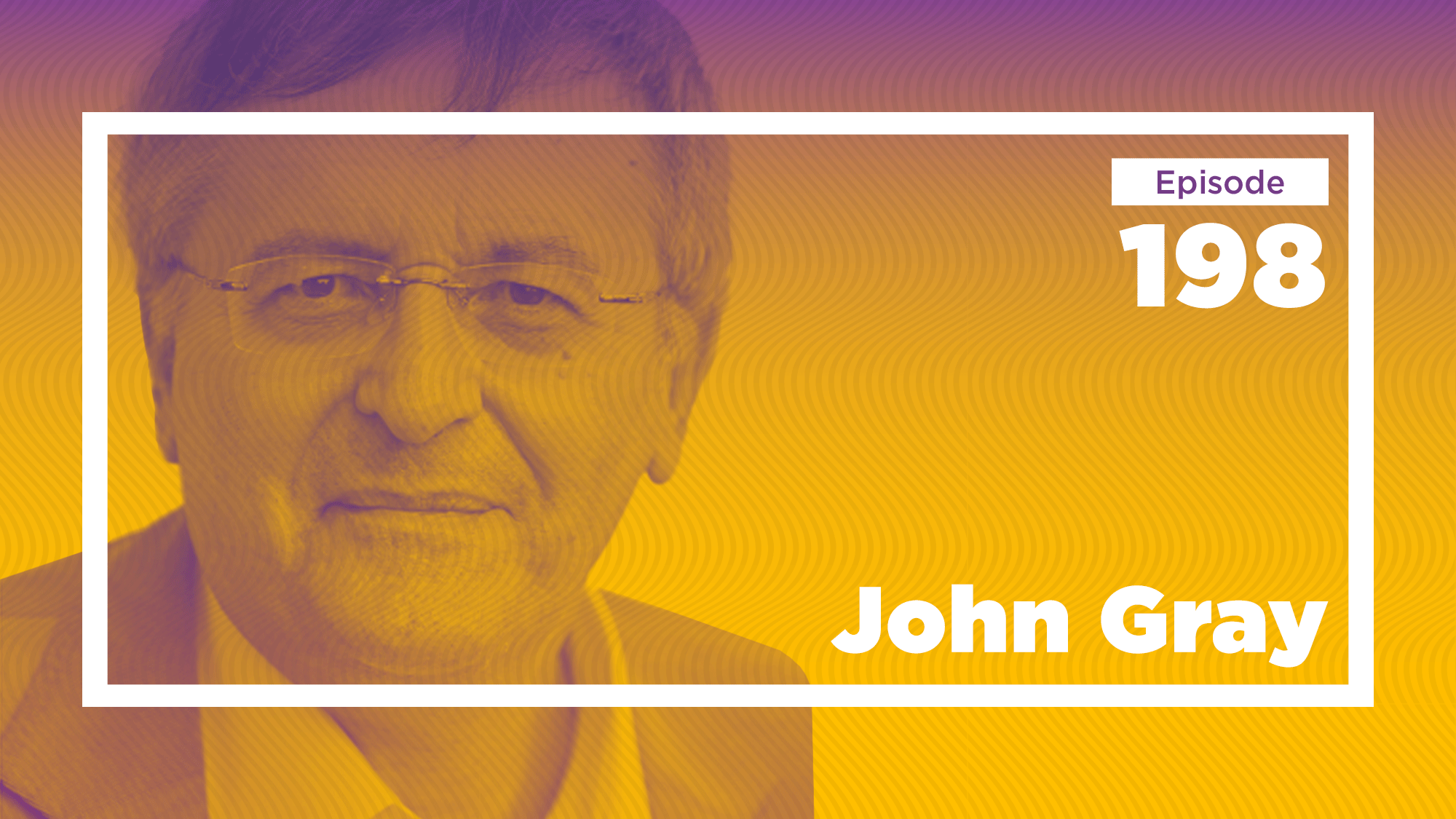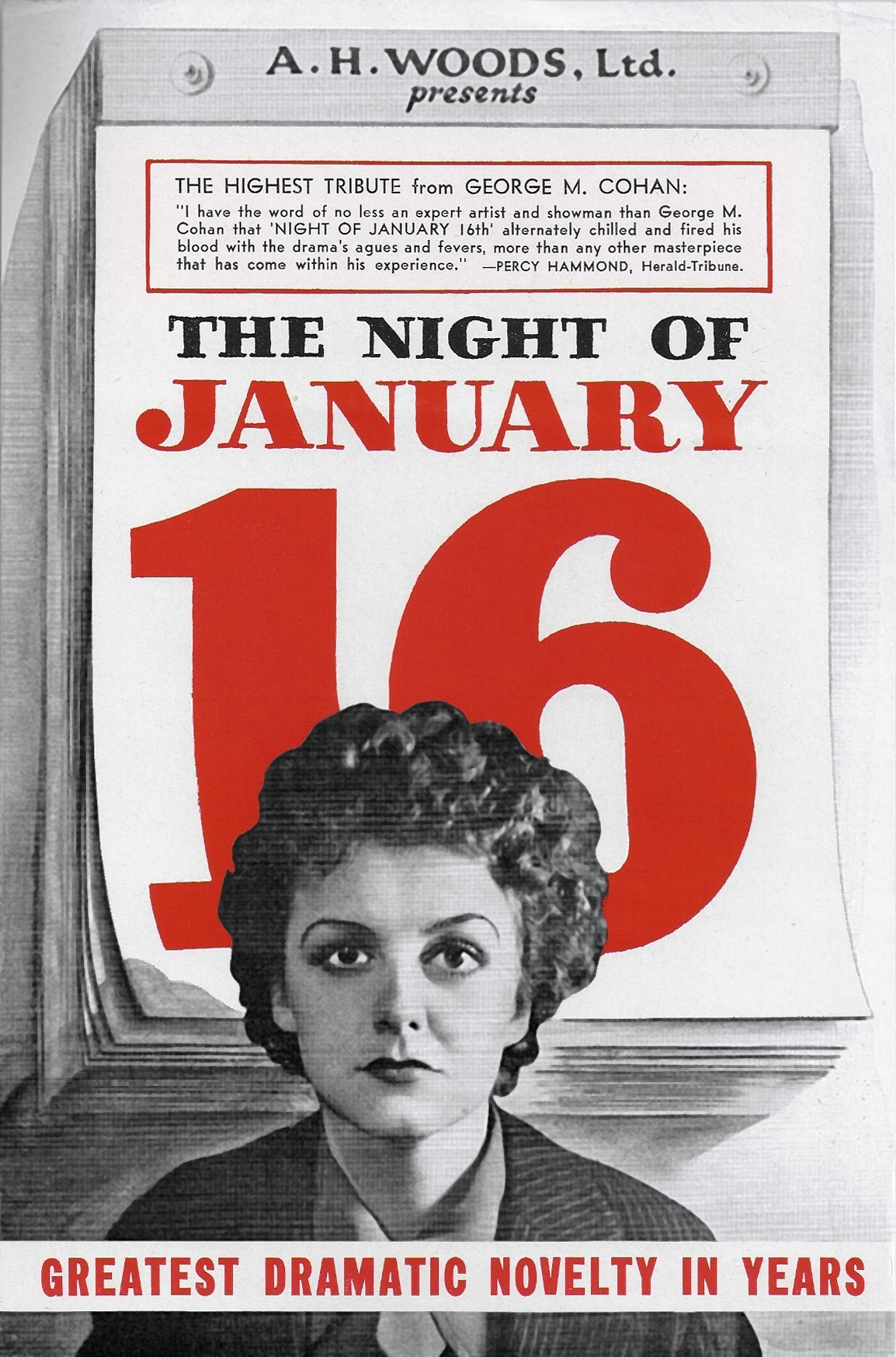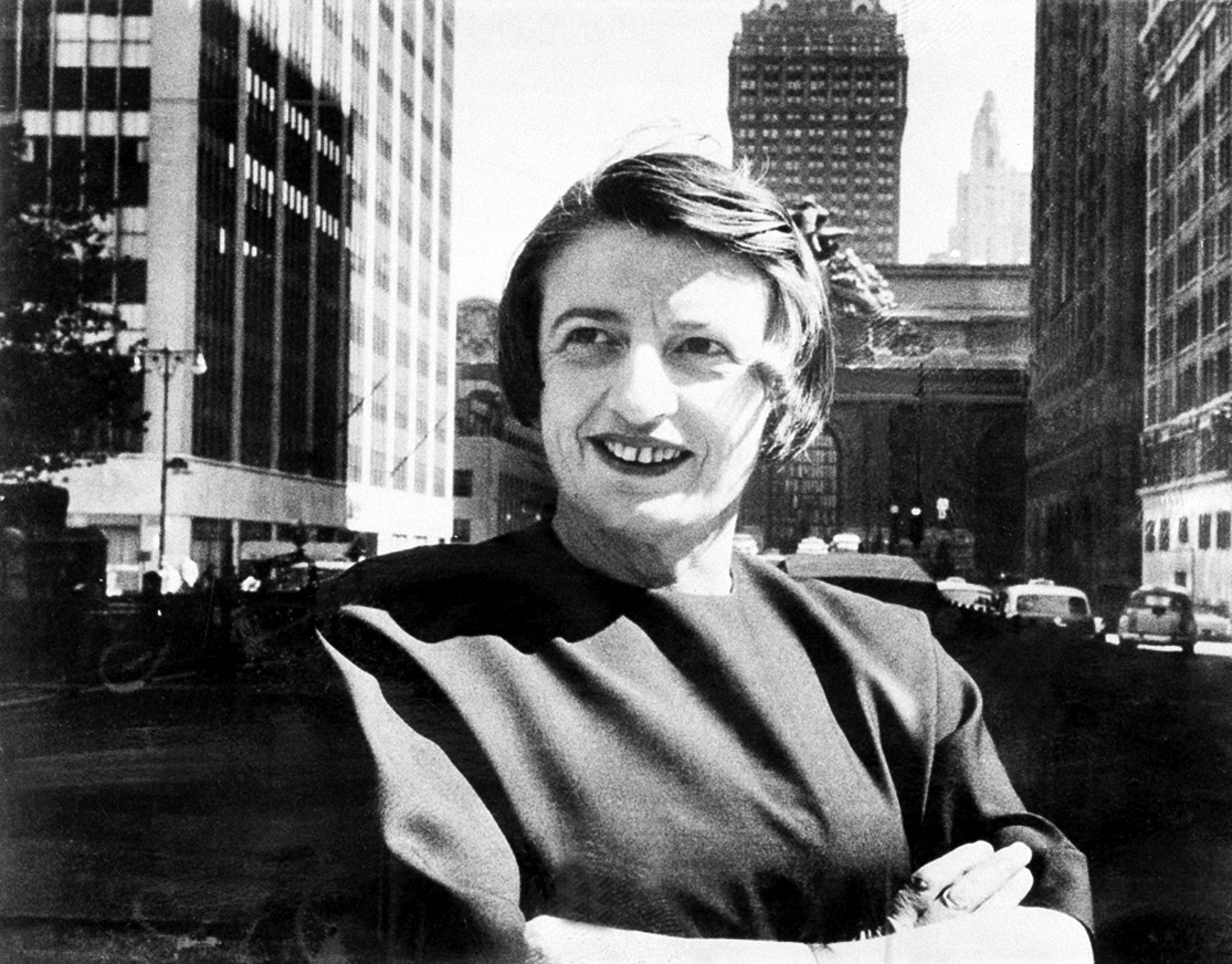Ayn Rand: The Greed God #5

Anyone who has ever proclaimed that God doesn’t exist has always invented a new one. Yes, I know who you're thinking about: his text is widely misinterpreted, most infamously by the subject of this essay—Ayn Rand. She went further with her proclamation; she became a God herself. I'm sure she would prefer to be referred to as a God rather than a Goddess, given her extreme ambivalence towards her own kind—Jews and women. What’s concerning here is that she succeeded in becoming one: the God of greed, cruelty, and anti-intellectualism. Her influence is a cornerstone in understanding the plague of moral crises we are engulfed by—and hopefully, a step towards addressing them.
There are two philosophers whose lens I will use here to deconstruct Ayn Rand and her unfortunate influence in the public sphere: William James and John Grey.
William James, in his book Pragmatism, spoke about the influence of temperament on philosophical systems. He believed that a philosophy is never more than a personal confession of its author. It represents an autobiography, indicating the way in which they look at things. Hence, rationality of any sort is a mere wrapper on the irrational world views and biases - shaped by one's life.
This seems like an obvious insight to me, but of course not to Ayn Rand. Although her life before she moved to the United States, before Alisa Zinov'yevna Rosenbaum became Ayn Rand, tells you everything you need to know about her extremely emotionally charged rage and angst against the world, which was of course disguised as a philosophy of extreme rationality, individualism, and selfishness as virtues to aspire towards.
Her disagreement with this obvious insight from William James is reflected through the fictional hero of her novel The Fountainhead
“Don’t ask me about my family, my childhood, my friends or my feelings. Ask me about the things I think.”
Refusing to acknowledge that her childhood had any impact on her philosophy sounds about as rational as when later in life she refused to admit that her incessant smoking led to her getting lung cancer.
Rand's philosophy of Objectivism was directly influenced by her childhood being disrupted and displaced by the Bolshevik Revolution. A rich sheltered bourgeois life impacted by a socialist revolution - which led her to have a comically reductionist view of the world as a teenager - something she kept building upon for the rest of her life. She was 12 when, in her very immature worldview, the undeserving peasants and working class took over her privileges and dreams. It's no surprise that most of her contemporary disciples are in Silicon Valley - who have a particular disdain for the working class and are against welfare programs. Again, that would have been fine; obsessing over the need for free-market capitalism isn't particularly evil until one learns about her first idol.
She was 23 when she wrote this about William Hickman - a serial killer who kidnapped, raped and then dismembered the body and sent the pieces to the police as a joke.
“a brilliant, unusual, exceptional boy with immense, explicit egotism....A strong man can eventually trample society under its feet. That boy [Hickman] was not strong enough.”
A serial killer and rapist was Ayn Rand's first hero - the inspiration for the protagonist of her first incomplete novel The Little Street. Her play Night of January 16th was also based on a criminal. I would end the essay here, but the army of weird nerds who defend her fascination with criminals is astounding. To them, all I have to say is Rand defended herself later in the career by saying that she did not admire their crimes – rather she admired the 'exceptional qualities' these criminals had which were hounded by the 'mob'. She said a criminal could serve as 'an eloquent symbol' of independence and rebellion against conformity. I guess serial murderers and rapists have admirable qualities while peasants don't. Incredibly horrifying world view to base your entire life's work on.
Her first successful novel - The Fountainhead has such a one-dimensional protagonist in Howard Roark that it makes Thanos look like a character study of Shakespearean proportions. Individualism good, collectivism bad is exactly the kind of binary thinking which would breed a whole class of Randian fans who would go on to lay the foundation of effective altruism - another joke for another essay. Some of them turn into LinkedIn Philosophers who write profoundly ironic statements like these and don't even realize it 'Roark can be likened to a modern-day Elon Musk'. Aliens, wherever you are, come take us all out. It's time.
Her next novel, Atlas Shrugged , opens with the question, “Who is John Galt?” Rand then spends the next two thousand pages answering the question by revealing her ideal man - her misinterpretation of Nietzhean Übermensch. Her ideal man is 'indifferent and has an infinite, calm contempt is all he feels for the world and for other men who are not like him.' If that sounds like she is describing a psychopath, well that's because she is. That's from her journal entry about her favorite rapist murderer William Hickman.
So why should we care about Rand today?
This is where my second lens comes in - borrowed from John's Grey, brilliant conversation with Tyler Cowen, where he says .
If you think in what are called secular terms, you can’t really understand the world that we now live in, not just because religions come back in as a force in war and a force in politics, but because many of the things that don’t seem religious are actually inspired by, not just religious needs and impulses, but even by religious categories or symbols or myths
Ayn Rand is the religious figurehead of Trumpian ideologies. His favorite book (yes I am thinking what you are thinking - he reads??!) is The Fountainhead. His political campaign started and unfortunately catapulted after he mocked a disabled journalist - something a Randian protagonist would do. We, the ones who don't idolize Ayn Rand, would have wished that clip of Donald Trump was a blip in our collective memory. Instead what we got last week - 8 years after that incident - is this chilling quote from Judge Arthur Engoron who ordered Trump to pay $350 million after being found guilty of lying about his assets for decades.
Their complete lack of contrition and remorse borders on pathological.
Ayn Rand and her early disciples had foreshadowed this. She took 2 years to write 60 pages, which are John Galt's radio script in The Fountainhead. In essence, they are written to convince readers that reason is superior to religion, egoism to altruism, and individualism to collectivism. When her editor at Random House Bennet Cerf asked her to cut the speech, she very famously replied 'Would you cut the Bible?'. She was writing the religious text for the cult of greed and cruelty - and she knew it.
Her most infamous disciple and lover Nathaniel Branden wrote this about her in his memoir. No, this is not from The Onion.
Ayn Rand is the greatest human being who has ever lived.
Atlas Shrugged is the greatest human achievement in the history of the world.
Ayn Rand, by virtue of her philosophical genius, is the supreme arbiter of any issue pertaining to what is rational, moral or appropriate to man’s life on earth.
Rand is one of many so called atheists who took the Nietzschean proclamation in a completely wrong way and ended up inventing another religion in the process, which led to the first openly morally vacuous and cruel president of the United States.
I can keep going, but writing this essay just makes my resting heart rate go up - and I can't afford that given my current training regimen. Criticizing Ayn Rand and her influence is the perfect example of the bullshit asymmetry principle. Fortunately for me, I neither have the time nor energy to refute it. It's too obvious for the ones observing. I know you are.
See you next week.
Sources:
















